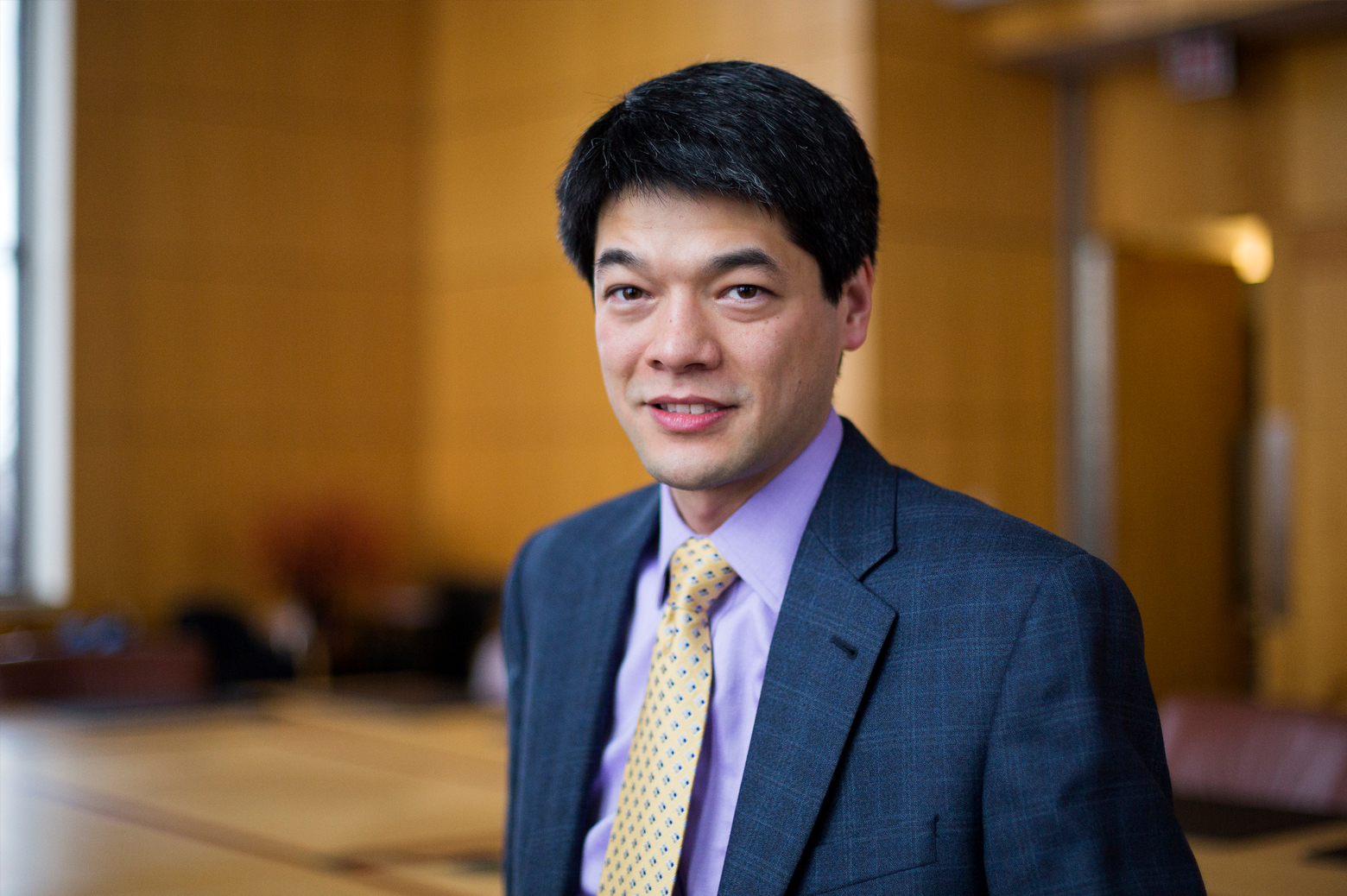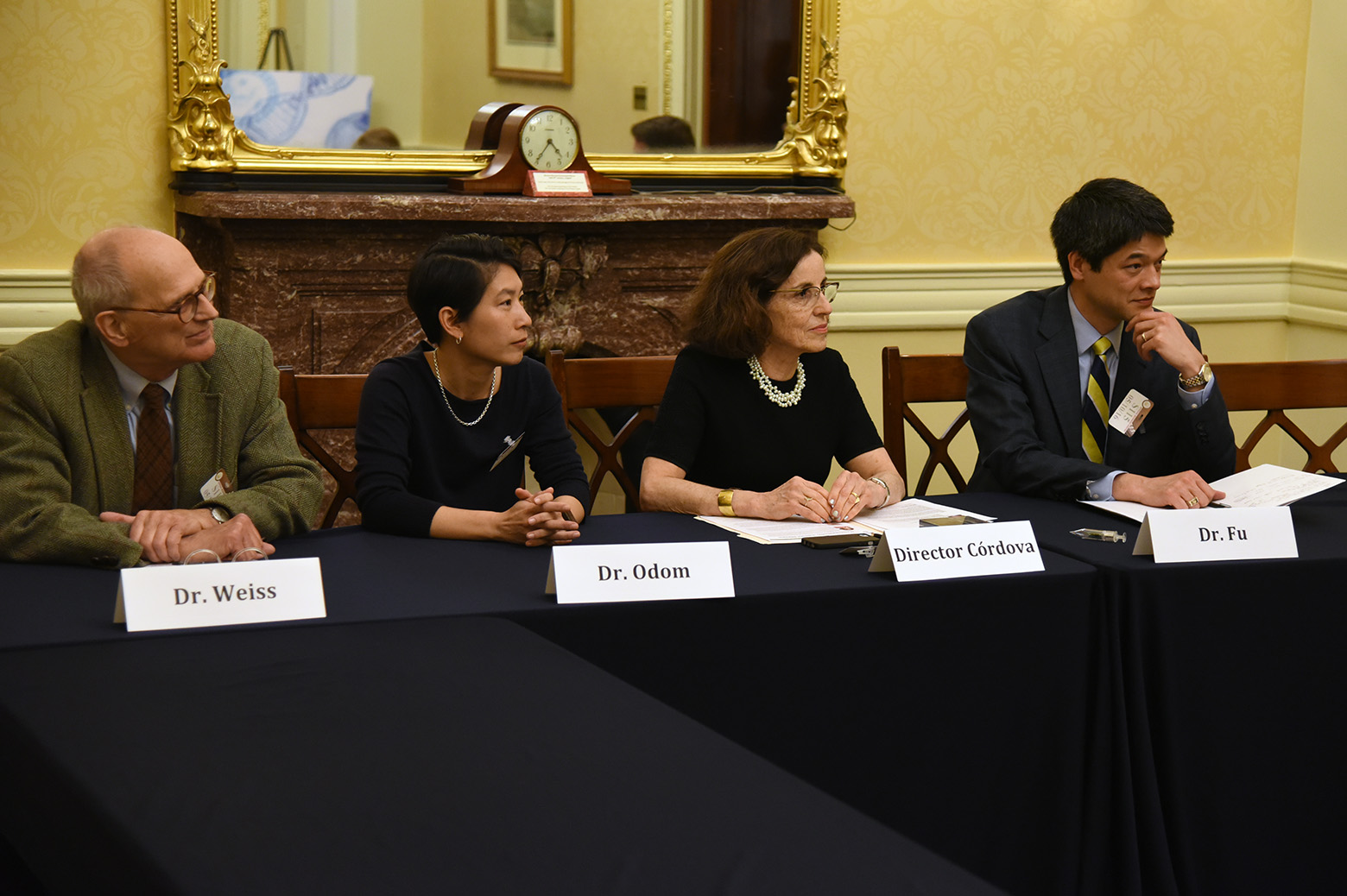Kevin Fu Elected IEEE Fellow for Contributions to Embedded and Medical Device Security
Prof. Fu was named an IEEE Fellow, Class of 2018, “for contributions to embedded and medical device security.”

 Enlarge
Enlarge
Prof. Kevin Fu has been named an IEEE Fellow, Class of 2018, “for contributions to embedded and medical device security.”
Prof. Fu is an expert on the subject of creating trustworthy embedded computing systems that are resistant to attack. Medical devices, autonomous vehicles, and Internet of Things (IoT) devices depend crucially on these types of embedded systems and sensors.
His interdisciplinary security research spans from the physics of MEMS sensor technology, to operating systems, to the devices and systems that are relied upon in hospital operating rooms.
Prof. Fu’s Security and Privacy Research (SPQR) Lab focuses on how to improve embedded security for computer systems that interact with the physical world. He directs the Archimedes Center for Medical Device Security for public-private partnerships in cybersecurity that transcend healthcare, industry, government, and academia.
Prof. Fu also serves in several national leadership roles to advise government on science, technology, and policy to improve computer security and privacy, where he expends significant time and effort in informing policy makers and Congress about issues and acting as a strong advocate in Washington, DC on behalf of the computing community at large.

 Enlarge
Enlarge
Prof. Fu’s impact on medical device security can be assessed in several dimensions. On the research front, his medical device security papers have received best paper awards from top IEEE and ACM conferences for their creativity and impact on interdisciplinary problems.
Prof. Fu had delivered more than 100 invited talks and and has served on panels on medical device security at federal regulatory agencies, universities, research labs, workshops, conferences, companies, and government.
The governments of Germany, Japan, and China have recently incorporated the standards document he co-led in their medical device regulations, and in the US he has led a multi-year effort by a federal advisory committee to urge the HHS Secretary, NSA Director, OMB Director, White House Cybersecurity Czar, National Security Council, NIST Director, and DHS Undersecretary of Cybersecurity to take specific actions to address policy gaps in medical device security, which has led to the first medical device security standard recognized by FDA.
As a result, Prof. Fu’s work has been recognized by the federal government and many other bodies. In 2013, the US federal government recognized him with a Fed100 Award. In 2014, he was chosen for a Young Scientist Award by the World Economic Forum. In 2017, the AAMI medical device standards body selected Prof. Fu to receive its annual Dr. Dwight Harken Memorial Lecturer Award. That same year, the University of Michigan recognized him with the Regents’ Award for Distinguished Public Service.
Prof. Fu and his PhD students co-founded the healthcare cybersecurity startup Virta Labs to help hospitals manage cybersecurity risks to medical devices on clinical networks. The company sells BlueFlow, a software product, for hospitals to assess risks of their medical device inventory on clinical networks.
Prof. Fu also serves as chair of the national Cybersecurity Taskforce of the Computing Community Consortium (CCC) Council. The mission of CCC is to catalyze the computing research community and enable the pursuit of innovative, high-impact research. CCC conducts activities that strengthen the research community, articulate compelling research visions, and align those visions with pressing national and global challenges. CCC communicates the importance of those visions to policymakers, government and industry stakeholders, the public, and the research community itself.
Prof. Fu received his PhD in Electrical Engineering and Computer Science from MIT in 2005 and joined the faculty at Michigan in January 2013. Prior to joining UM, he was an Associate Professor of Computer Science at University of Massachusetts Amherst. He has served as a visiting scientist at the Food & Drug Administration, the Beth Israel Deaconess Medical Center of Harvard Medical School, and MIT CSAIL, and was a member of the NIST Information Security and Privacy Advisory Board. He previously worked for Bellcore, Cisco, HP Labs, Microsoft Research, and Holland Community Hospital.
Prof. Fu is the recipient of a Sloan Research Fellowship, an NSF CAREER award, and best paper awards from USENIX Security, IEEE S&P, and ACM SIGCOMM. He was chosen as one of MIT Technology Review’s TR35 Innovator of the Year in 2009. He is a Senior Member of the Association for Computing Machinery.
About IEEE:
IEEE is the world’s largest professional association dedicated to advancing technological innovation and excellence for the benefit of humanity. The IEEE Grade of Fellow is one of the most prestigious honors of the IEEE, and is bestowed upon a very limited number of Senior Members who have contributed importantly to the advancement or application of engineering, science and technology bringing significant value to our society. The number of IEEE Fellows elevated in a year is no more than one-tenth of one percent of the total IEEE voting membership.
There are more than 430,000 IEEE members in more than 160 countries. The IEEE publishes a third of the world’s technical literature in electrical engineering, computer science and electronics and is a leading developer of international standards that underpin many of today’s telecommunications, information technology and power generation products and services.
 MENU
MENU 
